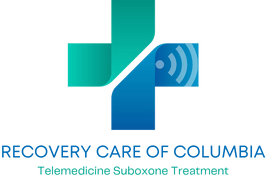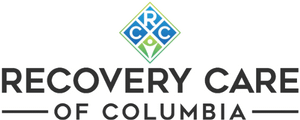Columbia Suboxone Clinic Blog
Should Relapse Be Expected in Addiction Treatment?
Relapse is a significant concern in the journey of addiction recovery. It’s often seen as a setback, but understanding its complexities can empower individuals and families to navigate the challenging landscape of substance use disorder.
What is Relapse?
In the context of addiction, relapse refers to the return to substance use after a period of abstinence. It can occur at any stage of recovery, whether shortly after treatment or years later. Relapse doesn’t simply mean failure in recovery; it’s a fairly common occurrence in the recovery process, affecting many individuals in addiction treatment.
Relapse doesn’t have to be a part of your recovery, but it can happen. Recognizing relapse as a possibility can help destigmatize the experience and encourage a more supportive approach to one’s recovery.
“Relapse doesn’t have to be a part of your recovery, but it can happen.”
The Relapse Cycle
There are many misperceptions regarding how and why opioid addicts relapse. For example, some people believe an addict will relapse if given unexpected access to their drug of choice and are incapable of abstinence. Other people believe addiction relapse occurs mostly due to peer pressure.
As it turns out, relapse is often a “planned event” that starts many days or even weeks before the physical relapse occurs. Relapse typically occurs in three stages: emotional, mental, and physical:
- Emotional Relapse: This phase involves feelings of stress, anxiety, and depression, often without a conscious intention to use substances. Individuals first withdraw from their support networks or neglect self-care practices as a result of having these feelings. Another type of emotional relapse can occur when an addict relives positive memories of shared drug use with family and friends.
- Mental Relapse: During this stage, thoughts about using substances re-emerge. Individuals may romanticize past substance use or justify their cravings, leading to internal conflict between the desire to stay sober and the urge to use.
- Physical Relapse: This is the final stage where the individual actually consumes the substance. This can lead to a cycle of guilt and shame, making it even more challenging to seek help.
Causes of Relapse
Understanding the triggers that lead to relapse in addiction is crucial for prevention. Common factors include:
- Stress: Life’s pressures can increase vulnerability to relapse. Stressful situations, whether related to work, relationships, or financial issues, can trigger cravings.
- Environmental Triggers: Being in places or around people associated with past substance use can lead to relapse. Familiar environments may evoke strong memories that can reignite cravings.
- Emotional States: Unresolved emotions such as anger, sadness, loneliness, or excitement can prompt individuals to seek solace in substance use.
- Lack of Support: A weak support system or disengagement from recovery programs and groups can make individuals feel isolated, increasing the likelihood of relapse.
- Unrealistic Expectations: Many individuals expect recovery to be a linear process. When faced with challenges, they may feel discouraged, leading to a potential relapse.
How to Prevent Relapse
While relapse can happen, there are strategies to minimize the risk:
- Build a Strong Support Network: Engaging with supportive friends, family, and recovery groups can provide encouragement and accountability. Regular therapy sessions, group recovery meetings, and open conversations can help individuals feel connected and supported.
- Develop Coping Skills: Learning healthy coping mechanisms for stress and emotional turmoil is essential. Techniques such as mindfulness, meditation, and physical activity can help individuals manage their emotions without resorting to substances.
- Recognize Triggers: Identifying personal triggers is a critical step. Keeping a journal or reflecting on situations that lead to cravings can help individuals anticipate and navigate these challenges.
- Set Realistic Goals: Recovery is a journey that includes ups and downs. Setting achievable goals and celebrating small victories can build confidence and resilience.
- Continuous Education: Understanding addiction as a chronic disease can reshape one’s perspective. Knowledge about the relapse process can empower individuals to take proactive steps in their recovery journey.
- Honesty: Share your thoughts about drug use with your treatment provider, group recovery,
A Note About Relapse from a 10-Year Recovering Opioid Addict
I joined group recovery two weeks before I got clean. It was in group recovery that I realized my problems weren’t nearly as unique as I once believed they were. Within days of joining group recovery, I heard multiple people share stories that were nearly identical to mine. I remember thinking, “I want what they have,” and became ready to start addiction treatment.
After starting outpatient addiction treatment, I immediately got a sponsor in my group recovery meetings. I purposely chose a grumpy older man who had a lot of experience and sobriety; Someone I knew wouldn’t tolerate my crap. As it turns out, I made a great decision. My sponsor became a second father to me after spending countless hours with me. He became one of my best friends and someone I knew I desperately needed help from.
Before starting addiction treatment, I was convinced that all of my troubles were a result of my drug use and abuse. Nothing could have been further from the truth. My drug use was merely a symptom of my many emotional issues. I needed to grow up and learn how to live life on life’s terms instead of making terrible decisions due to my immaturity.
One of the most important things I learned from my sponsor is that I was susceptible to relapse if I wasn’t prepared when things “got good.” He knew that my tendency to use drugs was not just to cope with life when it wasn’t going my way but also as a means of celebrating when life gets good.
My sponsor used a scale of 1 to 10 to describe my emotions and reactions to things. He would remind me to always remain a 5 no matter how good or bad life was going.
Here’s what he meant:
When things go our way, we like to celebrate, often by partying. We become a 10
When things don’t go our way, we get very depressed and like to isolate and do drugs. We become a 1.
Hence, “always remain a 5,” meant don’t get too happy and don’t get to sad. Stay in the middle where you have good judgement.I got clean just before the holiday season in 2013. I relapsed five times in only six weeks and was desperate for sobriety. By joining group recovery and finding a Suboxone clinic near me, I was able to get clean once and for all, as well as establish new memories around Thanksgiving, Christmas, and New Year’s. I love the holiday season more than ever thanks to being clean. (Related article: Is Christmastime the Right Time to Start Addiction Treatment?)
Drew Bourke – Co-Owner/President
Recovery Care of Columbia
What to Do After a Relapse
If a relapse occurs, it’s essential to approach the situation with compassion rather than shame. Acknowledging the relapse, reflecting on what triggered it, and seeking support can help individuals get back on track.
At Recovery Care, we know relapse can be a part of addiction treatment. We also know that people who relapse are likely to beat themselves up more than anyone else ever could. Relapse is a time when recovering addicts need their recovery program the most. Our approach to managing relapse is simple:
- Provide support, kindness, and understanding.
- Increase the level of care.
“Proving comfort and a higher level of care has been an effective solution for our patients, helping them get back on track with their recovery program.”
Drew Bourke – Co-Owner/President
Relapse does not mean failure. Rather, it’s an opportunity to learn and reinforce one’s commitment to sobriety.
Recovery Is a Lifelong Journey
Recovery is a lifelong journey, and each experience, including setbacks like relapse, can contribute to a stronger foundation for a healthier, sober life. With great support and the right tools, the path to recovery is attainable.
Try Judgement-Free Telemedicine Addiction Treatment – All Major Insurance and TennCare Medicaid Accepted
Recovery Care has been helping Tennesseans overcome opioid addiction since 2021 using a state-of-the-art telemedicine addiction treatment program. Now, anyone living in Tennessee can receive addiction treatment using a cell phone.
Recovery Care is owned and managed by people in recovery who know first hand what it’s like to relapse. Though not a part of everyone’s recovery program relapse sometimers happens. Relapse is treated with kindness, understanding, and by implementing a higher level of care at Recovery Care.
All TennCare Medicaid and most commercial insurance plans are accepted.
There’s no need to drive to a Suboxone clinic ever again because we bring addiction treatment to you!
Click one of the links below to begin virtual Suboxone treatment from home today.
- TennCare Suboxone Telemedicine
- Commercial Insurance Suboxone Telemedicine
- Self-Pay Suboxone Telemedicine
Same-day appointments are available every weekday from 8:30 AM to 4:30 PM. Evening appointments are available every Wednesday until 8:30 PM. All times are Central Standard Time.



